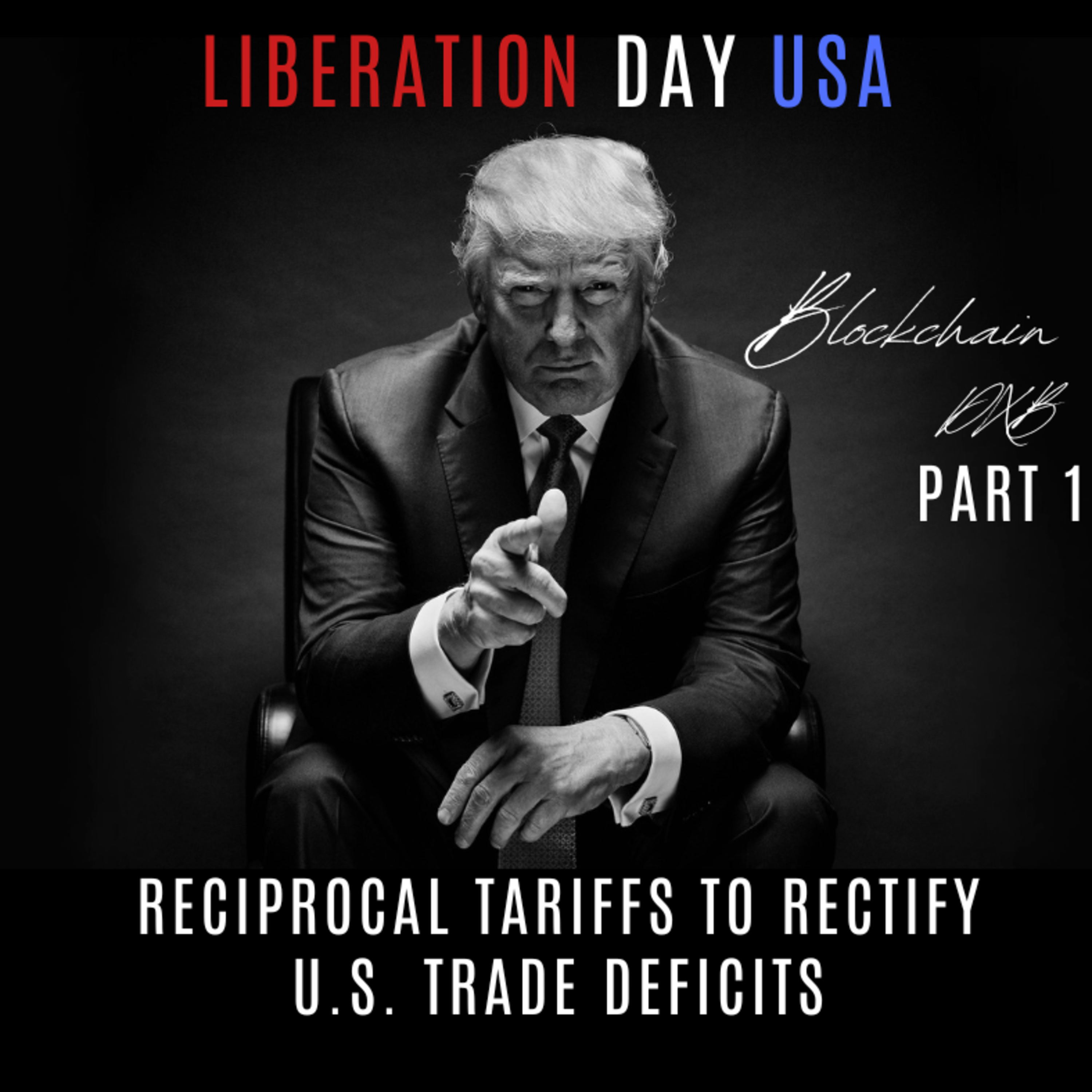
🚀 Liberation Day USA 🚀 April 2nd (PART 1): Reciprocal Tariffs to Rectify U.S. Trade Deficits 🚨🚨🚨

Blockchain DXB
Shownotes Transcript
💡 Episode OverviewIn this AI episode, we explore the implications of a Reciprocal Tariff policy aimed at addressing trade practices that have led to persistent and significant U.S. goods trade deficits. The discussion delves into the economic reasoning behind tariffs, the potential impact on international trade relations, and whether such policies are viable for balancing trade in a globalized economy.
🧠 AI-Generated ContentThis episode is entirely generated by AI, utilizing Notebook LM by Google, ensuring an in-depth, data-driven analysis of trade deficits and regulatory strategies.
📌 Key Topics Covered
- What are trade deficits, and why do they matter?
- Historical trends in the U.S. trade deficit and its economic consequences.
- Key industries and trading partners contributing to these deficits.
- Definition and economic rationale behind reciprocal tariffs.
- How do reciprocal tariffs compare to traditional tariffs?
- Case studies of countries implementing similar strategies.
- Unfair trade practices affecting U.S. industries.
- The role of subsidies, currency manipulation, and trade barriers.
- Effects of globalization and supply chain dependencies.
- How would such tariffs affect relations with key trade partners (China, EU, Canada, etc.)?
- Potential retaliation and trade wars: Risks and opportunities.
- WTO (World Trade Organization) regulations and compliance challenges.
- How reciprocal tariffs align with U.S. trade policy objectives.
- Pros and cons for businesses, consumers, and government revenue.
- Political challenges and bipartisan perspectives on trade regulation.
- Could reciprocal tariffs successfully reduce the U.S. trade deficit?
- Alternative solutions: Trade agreements, domestic manufacturing incentives, and diplomatic negotiations.
- Long-term economic impacts on inflation, employment, and innovation.
🎧 Listen & SubscribeStay informed on the latest in trade policies and economic trends. Subscribe to our podcast and never miss an insightful discussion!To support this channel:
🚨Join our Patreon🚨 https://www.patreon.com/BlockchainDXB )
⚡ Tether USDT (ERC20) 0x7acd89cececd5b125a2fc4caa9bc642879579f1e
⚡ Buy me Coffee ☕
https://www.buymeacoffee.com/info36/w/6987)
⚡ Advanced Media
Advanced Media is the largest distributor of professional video, photo, broadcast and cinema equipment and accessories in the Middle East https://www.amt.tv/)
⚡ The Race Space Podcast 🎙️
Instagram: @theracespoacepodcast
- Podcast Host: @black_incarnation
⚡ Ledger Wallet 🔑
https://shop.ledger.com?r=ae54df359c4d)
Registration Link:
⚡ Bitcoin address: 02ddf96964b352b75dd660a56a5162bf9e76e549e31263b88ed93015e635771795
⚡ Cardanoaddress:
addr1qxwu4h9uw4ptc6jp4zzhvckcjua7nda9u5fkvmdfrge00n3dpznq9000nxdcvklpdtw320zku7eeju483l2pg6gtw3eqp8e4q6